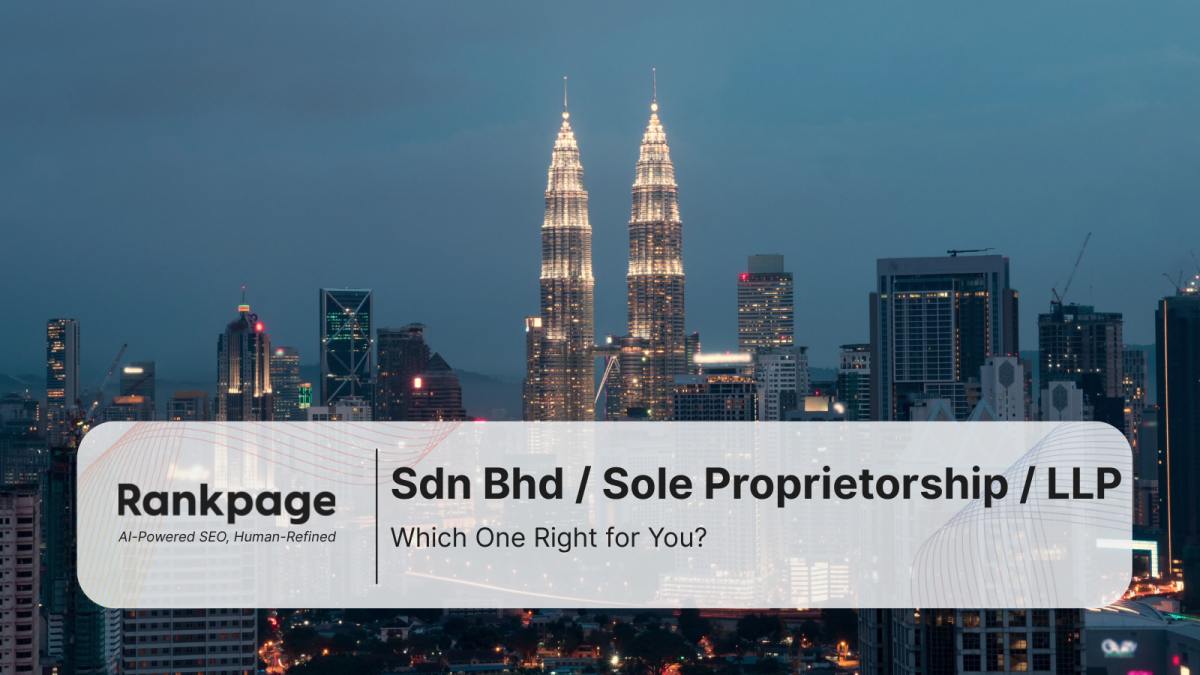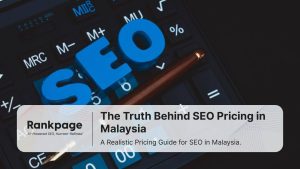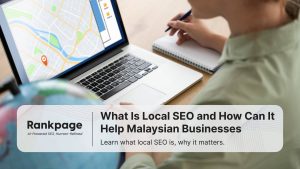Key Takeaways
- Sdn Bhd offers limited liability, ideal for growth-focused businesses with long-term plans.
- Sole proprietorships are cheap to register and easy to run but carry full personal risk.
- LLPs blend liability protection with management flexibility, often used by professionals.
- Each entity differs in tax treatment, ownership, compliance, and legal identity.
- Choosing the right business structure depends on your capital, partners, risk appetite, and growth ambition.
Sdn Bhd is a private limited company in Malaysia that offers limited liability, separate legal identity, and corporate tax advantages. It differs significantly from sole proprietorships and LLPs in ownership rules, compliance duties, and business scalability.
If your business racks up RM200,000 in debt next year, will it come after your house or just your company’s balance sheet? That’s not a hypothetical. That’s what choosing between sole prop, LLP, and Sdn Bhd actually means.
Today, we’ll break down all three business structures, Sdn Bhd, Sole Proprietorship, and LLP, by cost, compliance, tax, liability, and suitability. So you’ll walk away with a clearer picture of which structure fits your business goals and what it actually means.
Table of Contents
What Does “Sdn Bhd” Mean in Malaysia?
A Sdn Bhd (Sendirian Berhad) is a private limited company that offers liability protection and a separate legal identity from its owners.
This is the most common business structure for small to medium-sized enterprises in Malaysia that want to scale beyond freelance or informal operations.
“A Sdn Bhd is a legal person under Malaysian law, it can enter contracts, hold property, open bank accounts, and be sued independently of its owners.”
The key difference? Your personal assets are protected. If the business goes bankrupt or gets sued, your house, car, and savings aren’t automatically on the line, only the company’s paid-up capital is.
Key Features of a Sdn Bhd:
- Separate Legal Entity: The company exists independently from its shareholders.
- Limited Liability: Shareholders are only responsible up to the amount they invested.
- Structured Ownership: Must have between 1 and 50 shareholders.
- Registered Under Law: Governed by the Companies Act 2016.
- Managed by Directors: At least one local resident director is required.
Who Should Consider a Sdn Bhd?
- Businesses seeking investor confidence and formal structure
- Founders planning to raise capital, open branches, or bid for government tenders
- Startups requiring compliance credibility and tax planning advantages
Sdn Bhd status is often a prerequisite for serious funding, licensing, and corporate partnerships in Malaysia.
What’s the Difference Between Sole Proprietorship, LLP, and Sdn Bhd?
Choosing your business structure isn’t just about how much paperwork you want to handle, it directly affects how you’re taxed, how protected your assets are, and how far your business can scale.
Overview of Each Structure:
- Sole Proprietorship: Owned and managed by a single individual. Profits are taxed as personal income, and the owner bears full personal liability for all debts.
- Limited Liability Partnership (LLP): A hybrid between a partnership and a company. It offers limited liability to partners and fewer compliance requirements, making it ideal for professional services and joint ventures.
- Sdn Bhd (Private Limited Company): A fully separate legal entity. Although it requires more compliance, it’s often the go-to for businesses seeking funding, formal structure, and long-term growth.
TDLR: Sole prop is the easiest to start, LLP is flexible with some protection, and Sdn Bhd is the most structured, with the strongest legal and financial advantages.
Comparison Table: Sdn Bhd vs Sole Proprietor vs LLP
| Feature | Sole Proprietor | LLP | Sdn Bhd |
|---|---|---|---|
| Legal Entity | Not separate | Separate legal entity | Separate legal entity |
| Ownership | One Malaysian | Minimum 2 partners | 1–50 shareholders |
| Liability | Unlimited personal risk | Limited to capital invested | Limited to paid-up capital |
| Tax Rate (2025) | Up to 30% personal | 17%/24% corporate tax | 15% (first RM150k), then 24% |
| Audit Required | No | No | Yes (mandatory annually) |
| Annual Compliance | None | Annual declaration | Annual return, audit, tax filing |
| Foreign Ownership | Not allowed | Allowed | Allowed |
| Funding Options | Limited | Limited (no equity funding) | Wide (loans, equity, investors) |
| Best For | Freelancers, traders | Partnerships, professionals | Startups, SMEs with growth plans |
How Much Does It Cost to Register Each Business Type?
Sole proprietorship is the cheapest, while Sdn Bhd involves higher setup and annual costs.
| Structure | SSM Registration Fee | Typical Total First-Year Cost |
|---|---|---|
| Sole Proprietorship (personal name) | RM 30/year (personal name) or RM 60/year (trade name) | ~RM0 (if income < RM70k, minimal costs) |
| LLP | RM500 registration fee | ~RM500–RM1,500 depending on service provider |
| Sdn Bhd (Private Limited Company) | RM1,010 incorporation fee | ~RM3,500–RM15,000+ (includes secretary, audit, compliance) |
Note: Costs vary based on volume, service provider, and company activity.
What Are the Tax Rates for Sole Proprietor, LLP & Sdn Bhd?
Your tax rate depends entirely on your business structure. Personal tax for sole proprietors, corporate tax for LLPs and Sdn Bhds.
- Sole Proprietor: Profits are taxed under the personal income tax system. Malaysia’s progressive rates go up to 30% for the highest income bracket.
- LLP: Taxed like a company, at 17% on the first RM150,000 of chargeable income, then 24% for the remainder.
- Sdn Bhd: Same corporate rates as LLP, but eligible for SME tax incentives and certain business deductions.
Example: If your business makes RM200,000 in taxable profit, a Sdn Bhd could potentially save over RM10,000 in tax compared to being taxed at the top personal income rate.
Read more: What Is a PPC Agency? The Simple Answer for Small Businesses
Who Can Own or Register Each Entity?
Only Malaysians can operate a sole proprietorship, but LLPs and Sdn Bhds are open to foreign ownership.
| Entity | Malaysian Only? | Foreigners Allowed? |
|---|---|---|
| Sole Proprietor | Yes | No |
| LLP | No | Yes |
| Sdn Bhd | No | Yes |
- Sole Proprietorship: Restricted to Malaysian citizens and permanent residents.
- LLP: Allows local and foreign partners.
- Sdn Bhd: Allows 100% foreign ownership in most industries (some sectors require local equity).
Which Offers Better Liability Protection?
Sdn Bhd and LLP both protect owners from personal liability while sole proprietors are personally responsible for all business debts.
If the business incurs RM100,000 in debt:
- Sole Proprietor: Owner’s personal assets can be seized to settle the debt.
- LLP: Partners are only liable up to their agreed capital contribution.
- Sdn Bhd: Shareholders are not personally liable, risk is limited to unpaid shares.
The Takeaway: Limited liability can protect your home, car, and savings from business-related claims. It is a major reason many SMEs move from sole prop to LLP or Sdn Bhd.
Which Is Easier to Manage: Sole Proprietorship, LLP, or Sdn Bhd?
Sole proprietorships have the least red tape, but LLPs and Sdn Bhds offer structure and protection at the cost of more administration. So a question of freedom and security.
But the ease of managing your business isn’t just about daily decision-making, it also comes down to compliance, reporting, and record-keeping. Here’s how the three compare:
| Structure | Decision-Making | Paperwork & Compliance Load | Management Notes |
|---|---|---|---|
| Sole Proprietor | Single owner makes all calls | Low: Minimal reporting, no annual returns or audits | Best for low-risk, small-scale operations; no board approval needed |
| LLP | Shared among partners | Moderate: annual declaration to SSM, compliance officer required | Flexible structure; fewer filings than Sdn Bhd but more than sole prop |
| Sdn Bhd | Board of Directors | High: Annual audit, board meetings, annual return, tax filing | Formal processes; suited for funding, contracts, investor confidence |
Management Effort at a Glance:
- Sole Proprietorship: Easiest to run day-to-day, but risky for high-liability industries.
- LLP: Balanced workload, allowing shared responsibilities and flexibility.
- Sdn Bhd: Most formal and compliance-heavy, but supports long-term growth and credibility.
If you want to focus purely on running your business without board meetings or audits, sole prop or LLP will feel easier.
If you aim to attract investors or sign big contracts, Sdn Bhd’s extra paperwork is absolutely worth it.
How to Choose the Right Business Structure
Choosing the right structure depends on your capital, industry, and growth plans and what’s common in Malaysia may surprise you.
| Situation | Best Option |
|---|---|
| Just started with minimal capital | Sole Proprietor |
| Joint venture in services sector | LLP |
| Planning to scale or raise funds | Sdn Bhd |
| Need to limit personal liability | LLP or Sdn Bhd |
| Want full control and zero paperwork | Sole Proprietor |
| Require audit-compliant structure | Sdn Bhd |
Trends in 2025
- Freelancers & home businesses: Commonly start with sole proprietorship to avoid high compliance costs.
- Professional firms: Law, accounting, and consultancy firms often prefer LLPs for flexible partner management and limited liability.
- Startups & SMEs: Choose Sdn Bhd for tax incentives, investor credibility, and easier access to loans.
Many Malaysian sole proprietors convert to Sdn Bhd once revenue passes RM100k or when they start hiring employees, both for tax planning and liability protection.
When and Why You Should Convert Sole Proprietorship to Sdn Bhd
A sole proprietorship works for starting small, but there comes a point where converting to a Sdn Bhd makes more sense, especially when your business grows.
You should consider making the switch when:
- Your annual revenue exceeds RM100k: At this point, corporate tax rates and SME incentives could lower your tax bill.
- You face growing legal or financial risk: Limited liability protects your personal assets if the business is sued or in debt. More assets = more liability.
- You plan to hire more staff or scale operations: A Sdn Bhd structure supports formal payroll, EPF/SOCSO contributions, and expansion.
- You need stronger business credibility: Many corporate clients, banks, and government tenders prefer to deal with Sdn Bhd companies.
Advantages of Converting
- Better tax planning: Access SME corporate tax rate (15% on first RM150k) and allowable deductions.
- Safer liability structure: Protects your personal savings, property, and assets from business-related claims.
- Banking convenience: Easier to open corporate bank accounts and access loans or credit facilities.
- Increased trust: Helps your brand’s professional image with clients, suppliers, and partners.
“Many Malaysian micro-businesses start as sole proprietorships for cost savings, then incorporate as Sdn Bhd once they cross RM100k in revenue or secure their first corporate contract.”
Conclusion: Choosing the Right Structure for Your Goals
If you’re starting lean, a sole proprietorship keeps things simple and affordable. But if you’re building for the long term with funding and liability protections, Sdn Bhd is usually the smarter choice.
LLPs remain a solid middle ground for professionals or partnerships that want flexibility without full corporate compliance.
As a local SEO agency, we’ve seen how the right business structure not only impacts compliance and tax, it also influences your online presence, customer trust, and ability to compete in search results.
If you’re ready to structure your business for growth, we can help you align your registration choice with a digital strategy that attracts the right clients from day one.
Let’s talk about where your business is now, and where it could be.
Disclaimer: All of the content was thoroughly fact-checked and verified by our editorial team to ensure accuracy, clarity, and reliability.
FAQ About Sdn Bhd / Sole Proprietorship / LLP in Malaysia
What Does Sdn Bhd Mean?
Sdn Bhd stands for “Sendirian Berhad,” meaning a private limited company in Malaysia.
Is A Sole Proprietorship Better For Small Businesses?
It can be, but only for low-risk, low-income businesses. Liability is a major concern.
Can Foreigners Open A Sole Proprietorship In Malaysia?
No. Only Malaysians can register a sole proprietorship.
Is LLP Or Sdn Bhd Better For Two Co-Founders?
LLP is flexible and lower in cost; Sdn Bhd offers more credibility and funding options.
What Taxes Do Sdn Bhd Companies Pay In 2025?
15% on the first RM150,000, then 24% corporate tax.
Do All Sdn Bhd Companies Need Audits?
Yes, audit reports are mandatory under Malaysian law.





